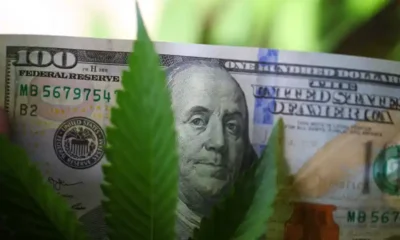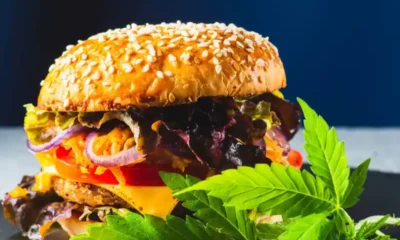Connect with us
Published
3 years agoon

Today, society is consistently shuffling through a slew of conversations surrounding inequity and the 1 percent. But one billionaire, Wichita, Kansas businessman Charles Koch, is speaking out and calling for an end to federal prohibition on cannabis, part of his continued focus on criminal justice reform.
Koch, a Libertarian and the CEO and chairman of Koch Industries Inc., said in an article from Forbes that he believes legalizing recreational cannabis would remove needless and harmful laws, which would in turn free up more of the population to better contribute to society as a whole.
Koch said, “It should be the individual’s choice. [Prohibition] is counterproductive. It ruins people’s lives, creates conflict in society and is anti-progress. The whole thing never made sense to me.”
The 85-year-old CEO has only consumed cannabis once, according to Koch, by accident in the 1980s. He was helicopter skiing in British Columbia, and at an evening dinner following a day out, the chef brought out a plate of brownies that ended up being cannabis infused.
Though Koch isn’t a consumer himself, he says his choice to go public follows his long-held belief that cannabis should be legal nationwide. With this endorsement and his ongoing work in criminal justice reform, Koch puts his name and nearly $25 million of his $45 million fortune toward legalization and reform efforts, according to Forbes. Koch’s right-hand man Brian hooks says they have already put around $70 million in total toward these issues over the last two years.
“By criminalizing (cannabis), it has huge negative manifestations, not only for the individuals who get trapped in that system, but also for society,” Koch said. “We want a society that empowers people to realize their potential and contribute, but with these laws you block out millions of people.”
Koch’s political advocacy group, Americans For Prosperity, joined other organizations to form the Cannabis Freedom Alliance in April, and the members have already lobbied Congress to push the United States to lift its federal cannabis ban.
As a libertarian, Koch says he sees cannabis prohibition as an infringement on personal freedom and as a destructive policy that further exemplifies America’s issues with mass-incarceration. He says the country should take note from the prohibition “nightmare” of alcohol in the 1920s and take appropriate action with cannabis.
Koch isn’t alone in his views. A Gallup poll from November 2020 shows that Americans are more likely now than any other time in the last five decades to support the legalization of cannabis, with 68 percent of U.S. adults in the poll saying cannabis should be federally legal. Currently, 18 states allow for adult recreational use and 37 states have legalized medical cannabis, already creating an industry that’s set to continue booming over the next decade.
Senators Chuck Schumer, Cory Booker and Ron Wyden introduced a draft of their long-awaited federal legalization bill in July, though it’s ultimately not yet clear if they will get the 10 Republican senators and all 50 Democratic senators needed to pass it. Schumer admits he doesn’t yet have the numbers, and President Biden continues to take a stance against recreational cannabis legalization.
Koch poses two questions for those folks expressing hesitation over legalizing recreational cannabis:
“If you don’t like marijuana, or don’t like people doing that, and you have all these laws, how’s that working out for you? Marijuana, as I understand it, is less addictive than alcohol. So why is alcohol legal and marijuana isn’t?”
Though Koch admits that he himself isn’t on the frontlines fighting for legalization, with others doing the groundwork on his behalf, Koch says he is in the “philosophy department,” touting that prohibition creates more issues for the country which already has a prison system that’s been exasperated.
Koch coming out as pro-cannabis, as a powerful and influential businessman, could potentially open more doors for other affluent powers who have, until now, kept their stance silent. Koch says that his involvement in this conversation brings people a lot of comfort.
“By criminalizing [cannabis], it has huge negative manifestations, not only for the individuals who get trapped in that system, but also for society,” he says. “We want a society that empowers people to realize their potential and contribute, but with these laws you block out millions of people.”


You Don’t Understand the Difference Between Decriminalizing and Legalizing, Do You?


North Dakota Committee Files Ballot Measure To Legalize Adult-Use Cannabis


California County Mulls Reduction To Cannabis Cultivation Tax


Cheech and Chong Become Newest Operators in Call of Duty


Manage Your Munchies: This Year’s Top 420 Meal Deals


New York Cannabis Control Board Approves 101 New Adult-Use Licenses
